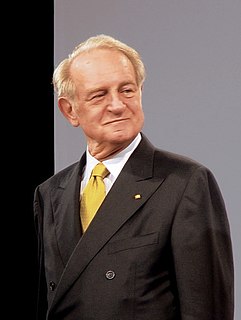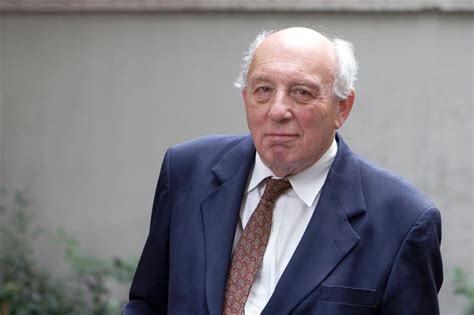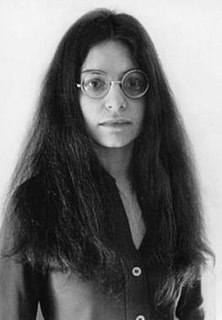A Quote by Sydney J. Harris
The difference between patriotism and nationalism is that the patriot is proud of his country for what it does, and the nationalist is proud of his country no matter what it does; the first attitude creates a feeling of responsibility, but the second a feeling of blind arrogance that leads to war.
Related Quotes
Patriotism, or the peculiar relation of an individual to his country, is like the family instinct. In the child it is a blind devotion; in the man in intelligent love. The patriot perceives the claim made upon his country by the circumstances and time of her growth and power, and how God is to be served by using those opportunities of helping mankind. Therefore his country's honor is dear to him as his own, and he would as soon lie and steal himself as assist or excuse his country in a crime.
Every patriot believes his country better than any other country . . . In its active manifestation-it is fond of killing-patriotism would be well enough if it were simply defensive, but it is also aggressive . . . Patriotism deliberately and with folly aforethought subordinates the interests of a whole to the interests of a part . . . Patriotism is fierce as a fever, pitiless as the grave and blind as a stone.
Populism is folkish, patriotism is not. One can be a patriot and a cosmopolitan. But a populist is inevitably a nationalist of sorts. Patriotism, too, is less racist than is populism. A patriot will not exclude a person of another nationality from the community where they have lived side by side and whom he has known for many years, but a populist will always remain suspicious of someone who does not seem to belong to his tribe.
Patriotism is proud of a country's virtues and eager to correct its deficiencies; it also acknowledges the legitimate patriotism of other countries, with their own specific virtues. The pride of nationalism, however, trumpets its country's virtues and denies its deficiencies, while it is contemptuous toward the virtues of other countries. It wants to be, and proclaims itself to be, "the greatest," but greatness is not required of a country; only goodness is.
A man's country is not a certain area of land, of mountains, rivers, and woods, but it is a principle: and patriotism is loyalty to that principle. In poetic minds and in popular enthusiasm this feeling becomes closely associated with the soil and the symbols of the country. But the secret sanctification of the soil and the symbol is the idea which they represent, and this idea the patriot worships through the name and the symbol, as a lover kisses with rapture the glove of his mistress and wears a lock of her hair upon his heart.
Why are we proud? We are proud, first of all, because from the beginning of this Nation, a man can walk upright, no matter who he is, or who she is. He can walk upright and meet his friend - or his enemy; and he does not fear that because that enemy may be in a position of great power that he can be suddenly thrown in jail to rot there without charges and with no recourse to justice. We have the habeas corpus act, and we respect it.
No, I make no pretension to patriotism. So long as my voice can be heard on this or the other side of the Atlantic, I will hold up America to the lightning scorn of moral indignation. In doing this, I shall feel myself discharging the duty of a true patriot; for he is a lover of his country who rebukes and does not excuse its sins.
The feeling of patriotism - It is an immoral feeling because, instead of confessing himself a son of God . . . or even a free man guided by his own reason, each man under the influence of patriotism confesses himself the son of his fatherland and the slave of his government, and commits actions contrary to his reason and conscience.
Every man is proud of what he does well; and no man is proud of what he does not do well. With the former, his heart is in his work; and he will do twice as much of it with less fatigue. The latter performs a little imperfectly, looks at it in disgust, turns from it, and imagines himself exceedingly tired. The little he has done, comes to nothing, for want of finishing.






























